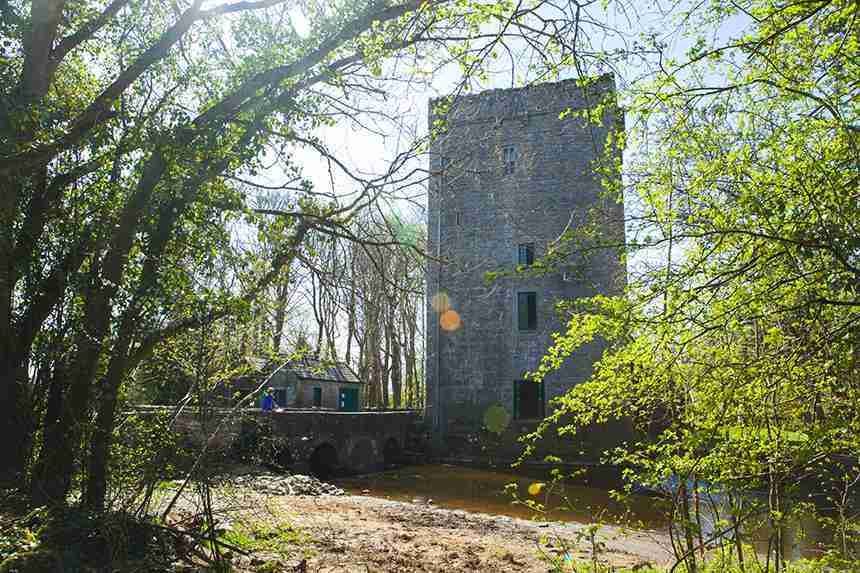A Purple
A purple abandoned in the dust
Of an impressionist painting;
A music fit for fame and fainting;
Wrought iron meant to rust.
What—in the tones ascending,
The colors caught and blending;
What—the metal mired in time:
Poems all—with a pall of rhyme.
The hues fade; the roar dies;
Genius glimmers to the grave;
Beauty itself closes its eyes
And sleeps a winter in its cave.
We Walk
We walk on the forest floor, you and I,
Beyond the bounds of lined fields and firelight,
Seeing only shapes of the wild and sky
So that all the world seems one woodland-sight,
And we feel these shapes touching us gently:
The stroke of a vine, the tap of a tree;
We’re forgetting each plant’s proper naming,
Classifications we’ve learnt from reading;
We stop recalling the links and logic,
Accounts of the world’s internal working,
And I wonder—do you hear strange music?
Our thoughts become theaters where branches vie
With one another and warm lengths of light
Pass through thickets and potent shadows lie
Alongside flowers, without fret or fight,
And birds trill high above with guiltless glee
Within the whisper of the canopy;
Amid this mass of oaks, we are walking
As they march up the hillside, enduring
Through every storm’s jest and every drought’s trick
With their trunks swelling and branches soaring.
Our father was here, where lost songbirds fly,
In the past, right here, in this selfsame site:
Right here would he laugh, right here would he cry,
Laboring by day and dreaming by night;
This was his home; this was where he was free:
One day our father climbed up high to see
The glory of heaven, the sun shining,
And when he climbed down, it was by hugging
The trees that he learnt to stand like this stick,
His feet on earth, his eyes upward looking.
As we walk, we see things growing nearby
And shrinking and stretching without respite;
We watch the shifting of the clouds up high
Unworried with how they’ll next shift in flight,
But with a regard that extends broadly
To all these shapes that in dusk’s lambency
Seem to shift like one immense thing moving:
A petal in play with wind while falling,
A spider weaving where the grass grows thick,
A bit of lightning in clouds gathering.
In both our bodies air is flowing by
Nutrients flowing down then up our height,
Surging with the air, with silence and sigh,
The dance of the forest’s diurnal rite;
Opposed things coming and going promptly:
You and I walking through the greenery;
Our bodies, our minds, our thoughts, are taking
Us deeper into the shapes of the thing;
That which makes the journey true and tragic
Is bringing us here, where all is growing,
And I wonder—do you hear strange music?
A Great Ox
A great ox like a hill in a barren field
Standing black against the dawn
With body once broken, now healed,
With silver-mended horns and brawn:
He pushed past the sun
And the mountains, unplowed immensities,
And with his silver won
A briar-crown of vanities.
Crowds that Meet
Crowds that meet in the city square,
Waves that beat in the sea,
Clouds, even, that greet in the air,
These things—they are free.
But the man alone, standing where the hour is gone,
Whom the world’s wide union has forgot,
In his expression there is caught
The look of dawn.
Listen to our conversation with Michael on the latest New Lyre podcast






I read the 3 short ones, long poems daunt me so I usually circumvent them.
What caught me about the trio of short ones was a certain distinction of language all 3 possess. Perhaps that fact alone will induce me to alter custom and tackle the longie.
In all 3 you are speaking at a higher level than most will find within grasp would be my guess.
I'm glad David put you up in the lights.
I also listened to your podcast with David. That was harder going, in part I think because your voice has a bit of gravelliness to it, which, combined with your speechspeed during the exchange, may explain why many words didn't come through to me. C'est la vie I guess.
En bref, hope to see you here again.
As a gift, in a separate reply box under this, if I can make it magically appear there, I'll include something by me, one which still represents my best advice.
I liked these poems. I thought the shifting rhyme scbemes and the subdued islands of the end rhymes contributed to a tone of reflective calmness. The rhymes and the rhythm never cross into boisterousness. The aural restraint of the sounds draws the reader into the poetry's universe of restraint.